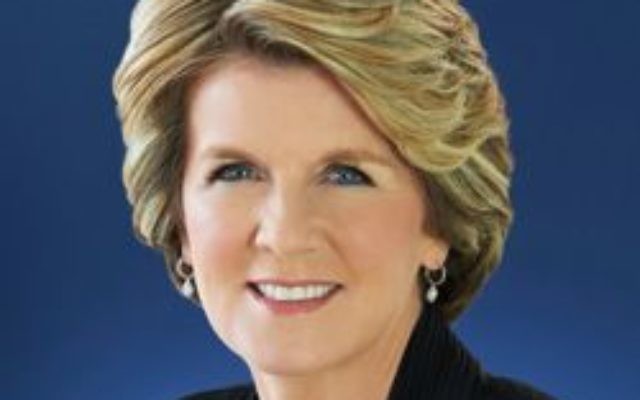East Jerusalem stance clarified
COMMUNAL leaders this week said they have no issue with an apparent softening of the federal government’s stance on the status of East Jerusalem.
COMMUNAL leaders this week said they have no issue with an apparent softening of the federal government’s stance on the status of East Jerusalem.
Earlier this month, Attorney-General George Brandis announced that the government would not use the term “Occupied East Jerusalem” due to it having “pejorative implications”.
The decision sparked a backlash from Arab nations, with the Organisation of the Islamic Conference (OIC) claiming Australia had adopted an “illegal position” and asking its member states to take necessary measures, presumably trade sanctions, in response.
Foreign Minister Julie Bishop has since met with and written to Arab leaders assuring them that Australia’s position on the status of East Jerusalem has not changed and is “consistent with relevant UN resolutions on the issue, adopted over many years, starting with UN Security Council Resolutions 242 and 338”.
“Senator Brandis’ statement was about nomenclature, and was not a comment on the legal status of the Palestinian Territories,” she wrote.
Head of the General Delegation of Palestine to Australia, Izzat Abdulhadi, told Sky News that Bishop “repeated several times” during the meeting that East Jerusalem is occupied.
He added: “The Australian government will not use capital ‘O’ when it comes to occupied East Jerusalem. They continue to use the small ‘o’.”
When asked for clarification on Abdulhadi’s remarks, a spokesperson for Bishop told The AJN only that “the Australian government will refer to the geographic name ‘East Jerusalem’”.
Bishop told ABC Radio last Thursday that “the Coalition has never disputed the historical fact that, in 1967, Israel occupied East Jerusalem”.
Australia/Israel & Jewish Affairs Council (AIJAC) executive director Colin Rubenstein said Bishop had not backtracked from the stance announced by Brandis. “It is now clear that Australian government ministers over a long period followed a well-established bipartisan policy with their descriptions of East Jerusalem, and that the criticism from the Greens, and claims from former foreign ministers Bob Carr and Gareth Evans [who wrote an opinion piece in The Canberra Times harshly critical of the position] and a number of commentators were misinformed and, at times, disingenuous,” he said.
“The take-outs of this incident are that the anti-Israel chorus will use disinformation and bullying in attempts to twist the Australian position to suit agendas which are as harmful to Palestinians as they are to Israel.”
Executive Council of Australian Jewry (ECAJ) president Robert Goot reiterated ECAJ’s support for Bishop, Brandis and Ambassador [Dave] Sharma’s position “of avoiding prejudicial language or pejorative terms in reference to Jerusalem and the West Bank, and matters of dispute between the parties to the conflict generally”.
“Territorial issues can only be resolved in the context of final status negotiations between the parties. There is simply no other way to peace,” he said.
GARETH NARUNSKY
Foreign Minister Julie Bishop.


comments